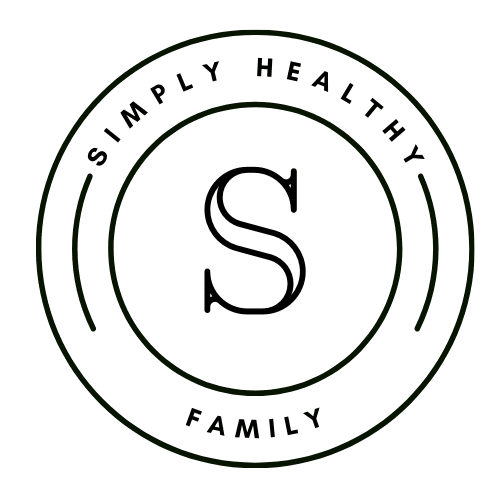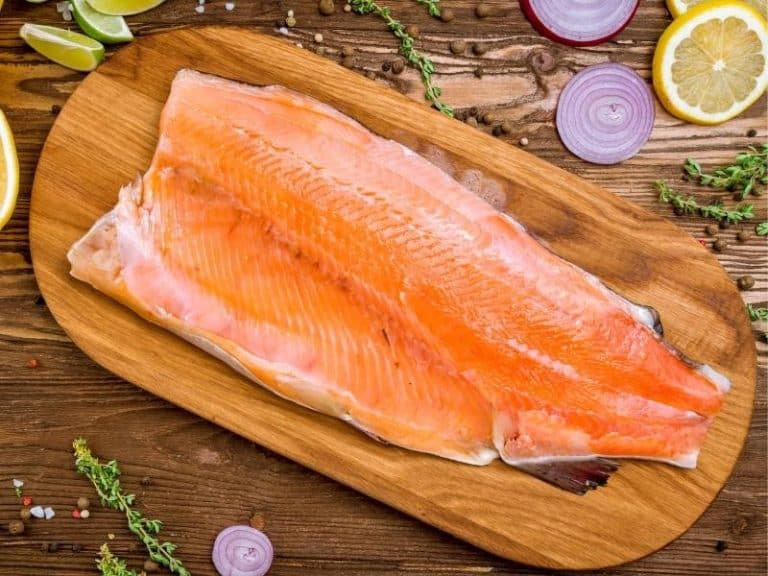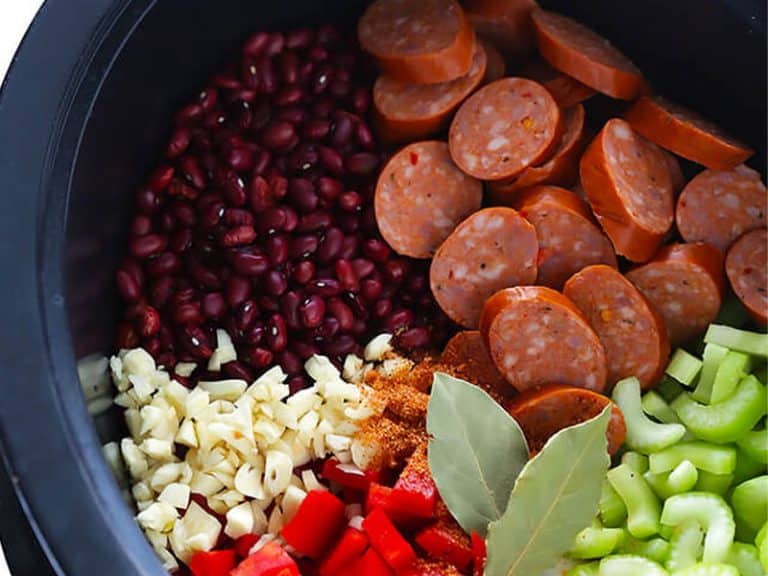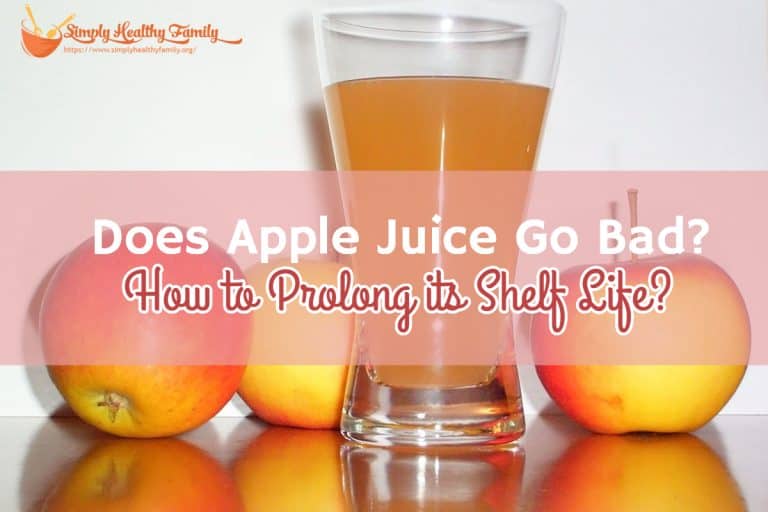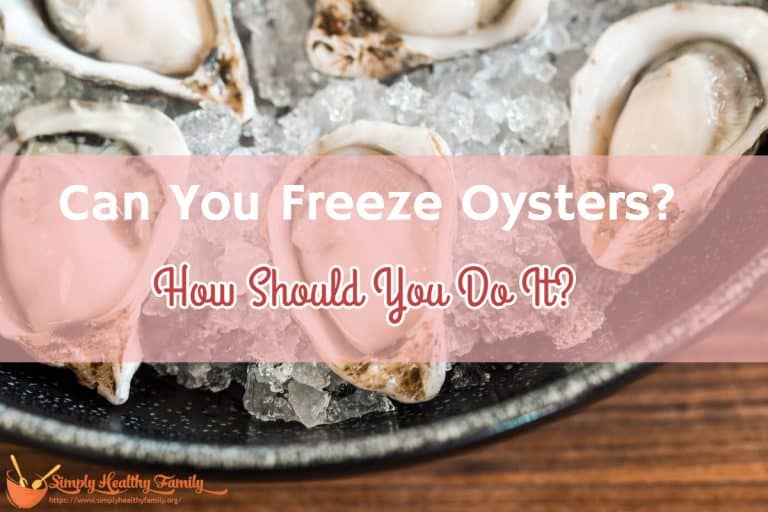Can You Eat Raw Peanuts? A Food Safety Guide
So here goes the one-dollar question: “Can you eat raw peanuts?” This is probably one of the most common questions among peanut lovers like me. I wasn’t very sure after listening to my friends’ divided answers, which is mainly why I have decided to look into it more seriously to finally clarify this question for my fellow peanut lovers out there.
The good news is, yes, you can eat raw peanuts because they’re not toxic. However, they’re commonly associated with aflatoxin, a carcinogen arising from the contamination of molds when the peanuts are not dried properly.
A Short Introduction to Raw Peanuts
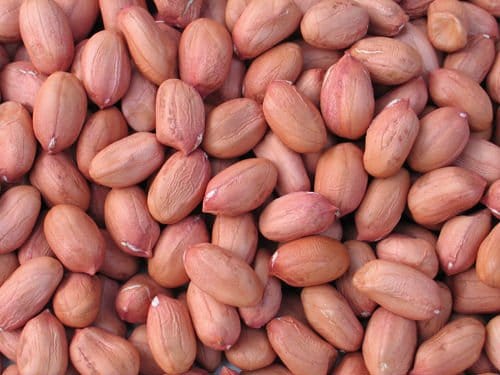
To set the record straight, peanuts are not nuts but legumes that are associated with chickpeas and beans. They originated from South America and played a significant part in the diet of Native Indians. Right now, the leading providers of peanuts are the United States, China, India, and Nigeria. Other major peanut-producing countries include Indonesia, Myanmar, Sudan, Senegal, and Argentina. Peanuts are a good source of protein and healthy fats, but they also contain carbohydrates and natural sugars, which contribute to how many calories are in them!
Interestingly, peanuts start as a ground flower that tends to bend towards the ground as it gets heavier. The peanut then matures into a new flower as it digs out underground. Usually, its brown shell comprises about 2-3 peanut kernels inside.
The Benefits of Raw Peanuts

If you’re attempting to start a healthy diet, you should consider eating raw peanuts because of their vast array of minerals and nutrients. Here are some of the health benefits of peanuts:
1. Reduce the risk of heart disease
According to the Peanut Institute, eating peanuts frequently may reduce the risk of heart disease. Eating a handful of raw peanuts 5-6 times a week may lower the risk of heart disease by about 50%.
You may reduce the risk of heart disease by about 24% if you eat peanuts twice weekly. All this is possible because the monounsaturated and polyunsaturated fats help decrease your body’s low-density lipoprotein (LDL) cholesterol.
2. It may decrease the risk of cancer
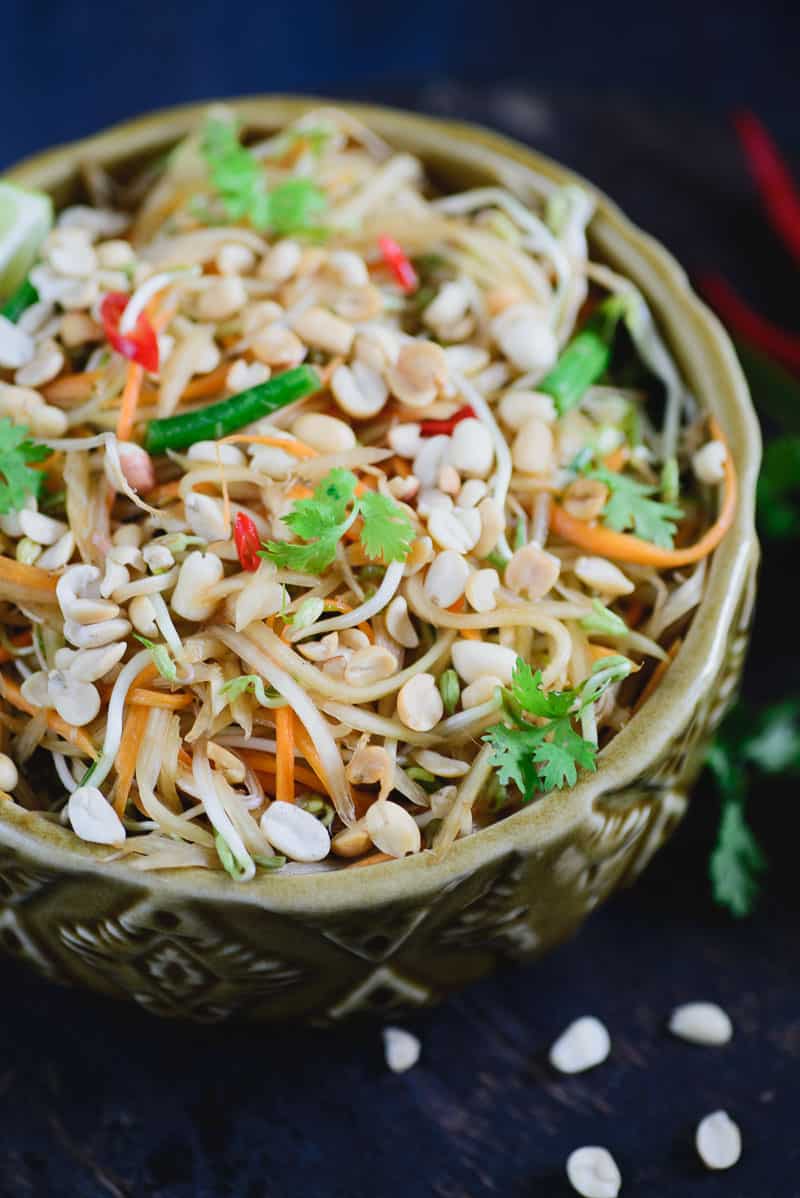
Stop Cancer Fund recommends the consumption of half a handful of peanuts daily to fight several cancer cases like breast cancer, colon cancer, and pancreatic cancer.
A 2010 study also shows a possible association between ovarian cancer and peanuts. They discovered that peanuts and other foods high in fiber might help sedate the growth of tumors that are less harmful and more likely to occur in young girls.
Such cancer prevention ability is possible because peanuts contain anti-cancer compounds: phytosterols and resveratrol. Phytosterols are known to lower bad cholesterol and inhibit the reproduction of cancer cells. Resveratrol also shows off the ability to cut off blood supply to developing cancer cells and prevent the growth of more cancer cells.
3. Aid in preventing gallstone disease
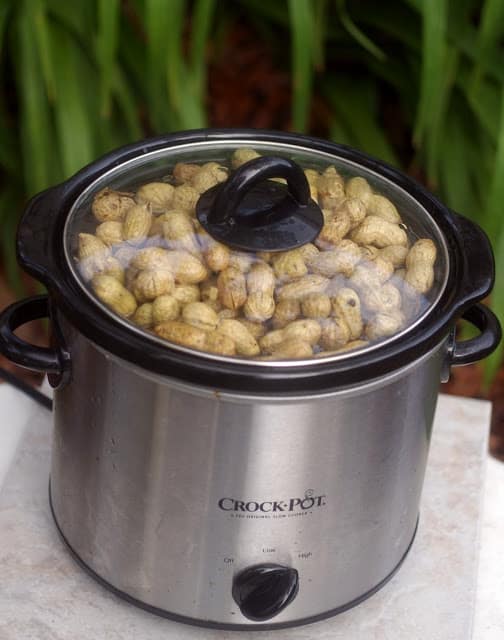
In a 2004 study published in American Journal of Epidemiology, results show that those who eat a handful of peanuts at least five times a week seemingly have cut their risk of getting gallstone diseases by about 30%. Gallstone disease results from having too much cholesterol in your bile.
Peanuts are popular in generating positive results on cholesterol. They lower bad cholesterol that can accumulate in your bile, decreasing the risk of gallstone diseases.
- Free from additives:
- Compared to salted roasted peanuts, raw peanuts contain less sodium which can be good for your health. Raw peanuts contain no added sugars or trans fats compared to peanut butter, which may be made from hydrogenated oils. As a result, you can eat raw peanuts as a snack without the guilt.
- Less likely to trigger allergies
- Raw peanuts are less likely to stimulate peanut allergies than roast peanuts. In a study conducted by Oxford University, samples derived from those who have eaten roasted peanuts showed harsher effects of peanut allergies than those who have eaten raw peanuts. Such allergic solid reactions can be prompted by the chemical changes undergone during the heating process of roasted peanuts.
Aflatoxin: The Potential Danger of Raw Peanuts
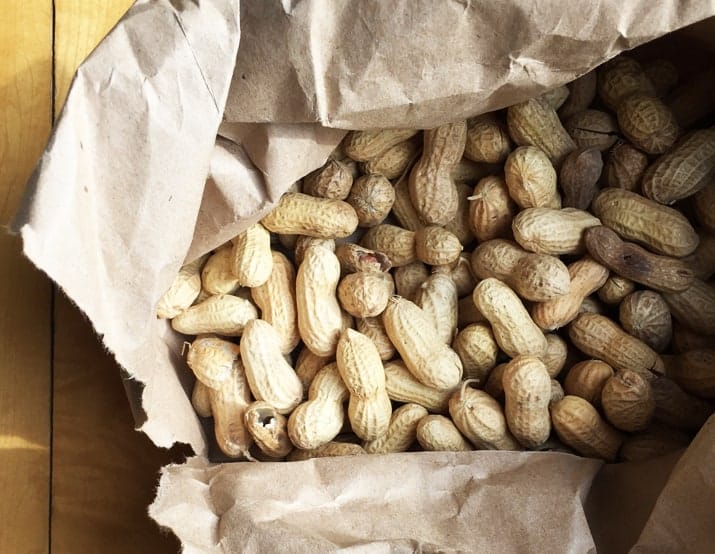
Eating raw peanuts in moderation is good for your health. However, you make yourself more susceptible to aflatoxin, a carcinogen that is produced by a mold known as Aspergillus flavus.
Aflatoxin mainly affects the liver. Longer exposure can even lead to liver cancer, hepatitis, and can even hinder normal growth in children.
Although this could be a bit alarming, the United States Department of Agriculture (USDA) has done measures to mitigate this problem. It implemented a regulation that allows 20 parts per billion as the maximum limit of aflatoxin to be found in all foods, including peanut products.
Choosing and Storing Raw Peanuts Safely
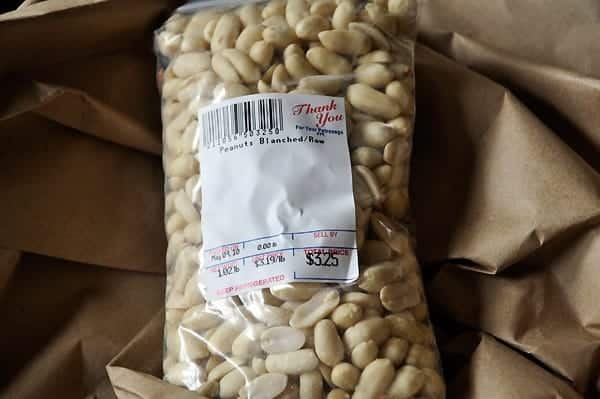
In choosing raw peanuts with the best quality, you may follow the following tips.
You can find shelled peanuts in prepackaged containers and bulk bins. To ensure you buy nothing but the freshest peanuts possible, check if the bins are covered in the bulk section. Observe if the store where you’re purchasing the peanuts has a good product turnover to guarantee that the peanuts are not old stock.
One way to ensure that your peanuts are free from molds is to check the packaged container. Inspect whether the said container is free from moisture or insect contamination. If possible, smell the peanuts to ensure you will not buy rancid ones.
When buying raw peanuts that are still in their shell, it is best to check the physical appearance of their shells. Always look for those with clean and unbroken shells. Get rid of those that are discolored, withered, or showing any signs of mold.
You can tell the peanut is in good condition by giving it a little shake. The peanut is in good condition if it feels heavy for its size and doesn’t give a rattling sound when shaken. A rattling sound indicates that the kernels have already dried out.
Whenever possible choose the 100% organic Valenciana and Jungle peanut variants because they’re supposed to be free from aflatoxins. If you would like to consider buying some raw peanuts with low aflatoxins, you may try this.
Storing raw peanuts in shells can go as far as six months. Just make sure that you store them in a cool, dry place. You should place shelled peanuts in an airtight container and store them in the freezer or refrigerator to keep them away from heat and humidity.
Preparing and Enjoying Raw Peanuts Properly

Raw peanuts can be consumed as a snack because they are very delicious and have less sugar and sodium compared to other processed peanuts. They can also be added to several dishes, like salads, soups, and stir-fries. Before you use them in a recipe, taste one to ensure its freshness or you could destroy the entire dish.
In preparing peanuts as part of a dish, chop them finely using a sharp chef’s knife and a clean chopping board. You can watch how it’s done in this video.
.
You can chop peanuts using a curved chopper and wooden bowl.
You can also do it in a food processor, but make sure that you don’t ground them too much or you’ll end up making peanut butter instead. The best way to do it is to grind a small amount at a time using the pulse button.
Once your raw peanuts are chopped finely, you can follow these simple recipe ideas.
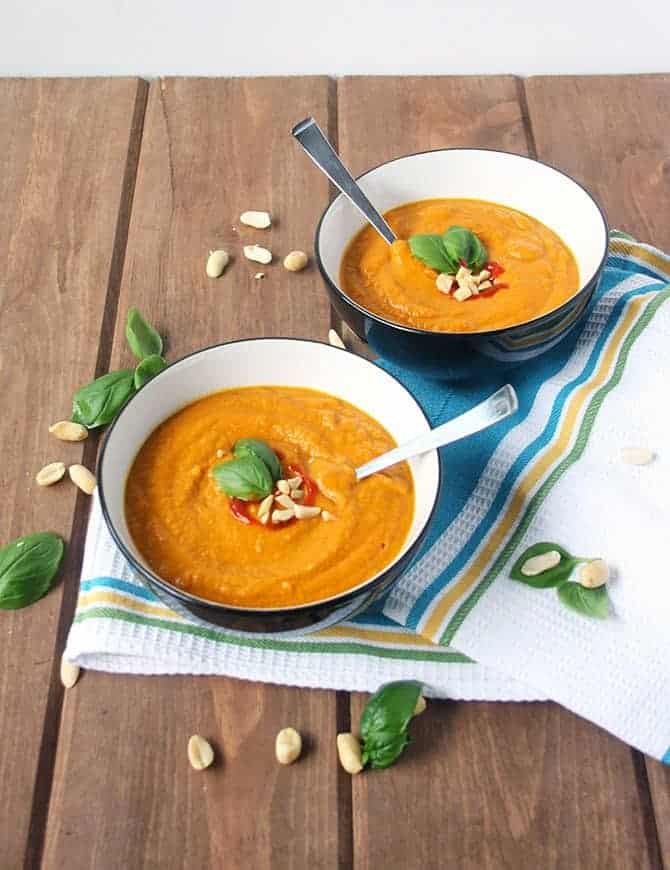
- Sauté them together with the vegetables to add a richer flavor.
- Toss them together with broccoli, peas, and celery to create a more delicious raw vegetable salad.
- Combine them with squash, coconut milk, and herbs for a richer Kabocha Peanut Soup.
- You can also make your sautéed chicken healthier by adding them to the dish.
- Of course, you can also take command and create your homemade peanut butter which is free from sugar and salt.
The American Heart Association suggests consuming four servings of raw peanuts weekly. A serving of raw peanuts is equal to 1.5 ounces or a small handful. Eat raw peanuts in moderation because they are high in calories and make you more susceptible to aflatoxin.
For every 1-oz serving of peanuts, you can get as much as 160 calories approximately. Peanuts are a very calorie-dense food, its important to be mindful of portion sizes to avoid consuming excessive calories and prevent weight gain.
Try Some Raw Peanuts Today!
The bottom line is you can eat raw peanuts but in moderation. Approximately, you can eat four 1.5 oz servings of raw peanuts every week. Just make sure that they are of the best quality.
If you would like to buy some raw peanuts, you might consider purchasing the Valenciana and Jungle peanut variants, just like this.
To eat raw peanuts safely, follow these easy steps.
- Choose raw peanuts with the best quality – new shells, don’t give a rattling sound when shaken and are in dry packaging containers.
- Store them in a cool, dry place.
- Eat them as snacks or add them to other dishes like salads, soups, and stir-fries.
Please message me in the comments section below if you find this article helpful. Share this post if you want to help spread this new found knowledge.
References:
http://www.whfoods.com/genpage.php?tname=foodspice&dbid=101
http://www.peanut-institute.org/health-and-nutrition/disease-prevention/heart-disease-details.asp
http://aje.oxfordjournals.org/content/160/10/961.full.pdf
http://vegetarian.lovetoknow.com/Are_Raw_Peanuts_Dangerous
http://www.berkeleywellness.com/healthy-eating/food/article/how-choose-and-cook-peanuts
